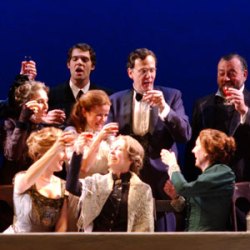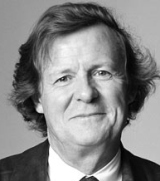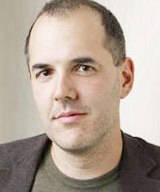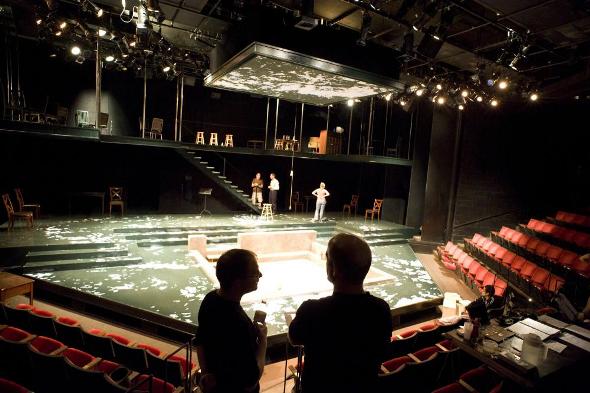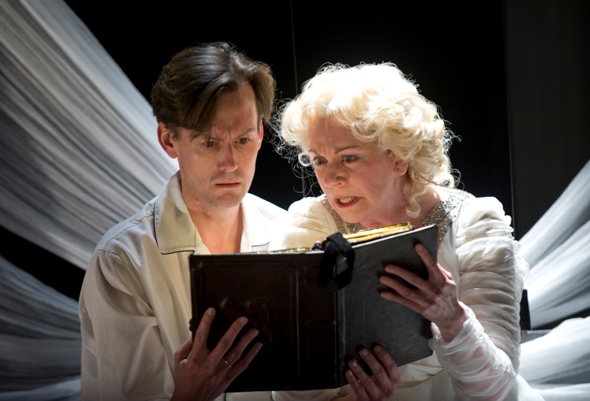The New Season: Court Theatre maps journey from Wilson’s ‘Jitney’ to a Molière bonanza
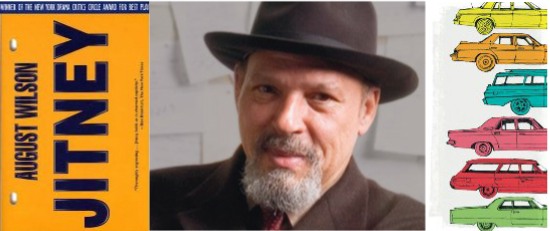 Seventh in a series of season previews: Ron OJ Parson directs his fourth August Wilson play at Court; artistic director Charles Newell pairs “The Misanthrope” and “Tartuffe.” The season opens Sept. 6.
Seventh in a series of season previews: Ron OJ Parson directs his fourth August Wilson play at Court; artistic director Charles Newell pairs “The Misanthrope” and “Tartuffe.” The season opens Sept. 6.
By Lawrence B. Johnson
What begins in September as an ambitious and far-flung season at Court Theatre, with August Wilson’s “Jitney,” ends next spring with nothing less than a prodigious Molière double-header, back to back productions of “The Misanthrope” and “Tartuffe.”
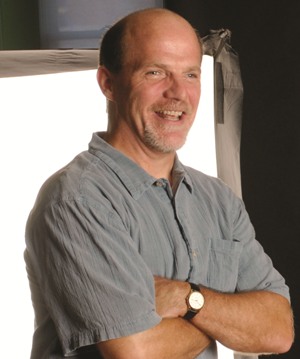 “Jitney,” which takes place in Pittsburgh’s historically African American Hill District in the 1970s, was the first play Wilson wrote in what eventually became a 10-part, decade by decade portrait of the black experience in America during the 20th century.
“Jitney,” which takes place in Pittsburgh’s historically African American Hill District in the 1970s, was the first play Wilson wrote in what eventually became a 10-part, decade by decade portrait of the black experience in America during the 20th century.
It will be the fourth play in the Wilson cycle to be directed by Court resident artist Ron OJ Parson, following earlier productions of “Ma Rainey’s Black Bottom,” “The Piano Lesson” and “Fences.”
“This is Ron Parson at his best,” says Court artistic director Charles Newell. “‘Jitney is the play I knew the least of August Wilson’s cycle. I’d read it but I’d never seen it. So when Ron said he wanted to do it, I re-read the play and instantly concluded this was a play we have to do. The complexity of the relationships among these men (unlicensed cab drivers serving a historically African American section of Pittsburgh in the 1970s) is extraordinary.”
The consecutive Molière plays are not tied to a momentous anniversary – he was born in 1622 and died in 1673 – but rather they will adorn an international Molière symposium at the University of Chicago that will bring scholars from France and elsewhere to the Hyde Park campus. Newell promises a highly unusual approach to both “The Misanthrope” and “Tartuffe.”
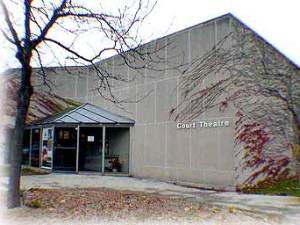 “Court has now earned a well-deserved reputation for its devotion to the African American canon, and with that has come a group of African American actors that rivals any in the country,” he says. “Both of these plays will be done by a company made up entirely of actors of color, with the exception of a white actor playing Alceste in ‘Misanthrope’ and the title role in ‘Tartuffe.’”
“Court has now earned a well-deserved reputation for its devotion to the African American canon, and with that has come a group of African American actors that rivals any in the country,” he says. “Both of these plays will be done by a company made up entirely of actors of color, with the exception of a white actor playing Alceste in ‘Misanthrope’ and the title role in ‘Tartuffe.’”
Both Molière plays will be done in English translations of the original rhymed couplets. “I’m a verse text fiend,” says Newell. “These characters don’t just talk that way for no reason. It’s speech raised to another gear to convey complex ideas and emotions, not at all unlike Shakespeare.”
The 2012-13 season in brief:
- “Jitney” by August Wilson (Sept. 6-Oct. 14): This snapshot of life in Pittsburgh’s Hill District centers on men hustling to make a living as jitneys – unlicensed cab drivers who fill the void created by the refusal of regular cabs to work the area. When jitney boss Becker’s son returns from prison, their confrontation threatens to explode into violence. Yet it’s not just the conflict but the human breadth and naturalism — of situations, story-telling, tone and language — that bear the mark of August Wilson’s distinctive voice. “The great scene between father and son is incredible,” says Newell. “It really struck home with me on re-reading. I have two teenage sons.”
- “The Dead,” adapted from the short story by James Joyce, with book by Richard Nelson and music by Shaun Davey, lyrics conceived and adapted by Richard Nelson and Shaun Davey (Nov. 8-Dec. 9): Part of Joyce’s 1914 “Dubliners” collection of short stories, “The Dead” might be characterized as an epiphany within Epiphany — the twelfth night of Christmastide, which for a group of Irish friends is an occasion for eating, drinking and singing. It becomes a night of self-discovery for Gabriel, a man who on this night finds in his wife a woman he does not know. “We did it two seasons in a row about a decade ago,” says Newell, who will direct the show, with Doug Peck as musical director. “This time the five-piece orchestra (piano, violin, flute, cello and guitar) will be actors at the gathering. We wanted to personalize those instruments and make them expressive of the actual characters. So we’ve taken the story and play to a whole other place.”
- “Skylight” by David Hare (Jan. 10-Feb. 10): On a cold London night, a school teacher receives an unexpected visit from a former lover whose wife has just died. Inevitably, they find themselves trying to rekindle the old passion – only to discover a new ideological gulf has come between them. Their dance becomes intense and dangerous. “It’s a devastating theatrical tour de force,” says Newell, “a pas de deux fraught with psychological intricacy and intimacy, and it brings out a crucial question of class and economics: What really happens to people in a capitalistic society?” Director William Brown, whose extensive Chicago credits include recent productions of “Heartbreak House” at Writers’ Theatre and “To Master the Art” at Timeline Theatre, will make his Court debut with “Skylight.”
- “Proof” by David Auburn (March 7-April 7): Winner of the 2001 Pulitzer Prize for drama and Tony Award for best play, “Proof” comes home to its setting in Hyde Park. (Playwright Auburn was born in Chicago.) As a genius mathematician and University of Chicago professor grapples with dementia, his brilliant but emotionally vulnerable daughter struggles to find her own identity in a quest for proofs both mathematical and personal. “The play is about many things,” says Newell, who will direct. “What’s really shattering is the realization that we all must go through this young woman’s journey of self-identification – and find some way to separate ourselves from our parents, to find our own proof.”
- “The Misanthrope” by Molière (May 9-June 9): Molière, the royal dramatist at the court of Louis XIV, was a worldly wise playwright who had raised himself up by genius and long years as an itinerant actor. He well might have called this enduringly popular play “The Conflicted Misanthrope.” The cynical Alceste takes a jaundiced view of stultifying social conventions of 17th century upper class France and the hypocrisies that lie behind them. But the poor fellow also happens to be in love with coquettish Célimène, the very embodiment of those same conventions. “When I came to Court in 1993-94, ‘Misanthrope’ was one of the first shows we did, though I didn’t direct it,” says Newell, an expert in French Baroque theater. “I’ve been dying to get back to this play. It’s like coming home.”
- “Tartuffe” by Molière (June 20-July 14): It would be hard to name another play that wields so sharp and cynical a rapier against the hypocrisy of piety and the clergy as “Tartuffe,” which got Molière into very hot water with the Catholic hierarchy in France. Tartuffe is the arch-devil of a priest, who uses his fraudulent religious fervor to insinuate himself in to the heart and home of the wealthy Orgon. The high comedy turns quite dark and dangerous before Tartuffe’s real mission runs its course. “We’re doing a modern-dress production set in a high-end Kenwood neighborhood mansion,” says Newell. “The father in our African American family has come under the sway of a white evangelical minister. The real question we’re exploring is what’s going on with that family that could be so ripped apart. I don’t think Molière’s play is simply about hypocritical religion.”
Getting there:
Founded in 1955 “to create innovative productions of classic plays that are thought-provoking, character-driven and theatrically enduring,” Court Theatre is located at 5535 S. Ellis Ave. in Hyde Park on the University of Chicago campus.
Related Links:
- Details and ticket info for the complete season: Get it at CourtTheatre.org
- Read August Wilson’s “Jitney”: Find it here
- Review of Court’s 2012-13 production of “Angels in America”: Read it at ChicagoOntheAisle.com
- Review of Court’s 2012-13 production of “An Iliad”: Read it at ChicagoOntheAisle.com
Photo captions and credits: Home page and top: Playwright August Wilson. Descending: Court Theatre artistic director Charles Newell. Court Theatre on the University of Chicago campus. Scene from Court Theatre’s 2002 production of James Joyce’s “The Dead.” Playwright David Hare. Playwright David Auburn. Molière, portrait by Pierre Mignard. Below: Rehearsal for Court Theatre’s 2008 production of “Caroline, or Change,” with book and lyrics by Tony Kushner. Scene from Court Theatre’s 2011 production of “The Gershwins’ Porgy and Bess.” Rob Lindley and Mary Beth Fisher in the 2012 Court Theatre production of Tony Kushner’s “Angels in America.” (Production photos by Michael Brosilow)
Tags: "Jitney", "Proof", "Skylight", "Tartuffe", "The Dead", "The Misanthrope", August Wilson, Charles Newell, Court Theatre, David Auburn, David Hare, James Joyce, Moliere, Ron OJ Parson, William Brown

